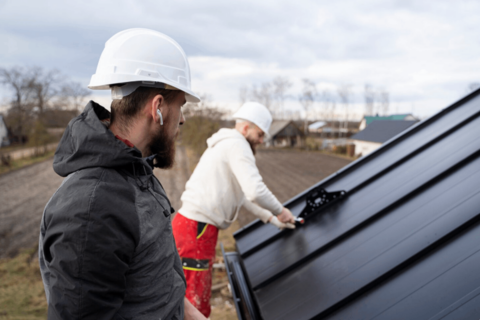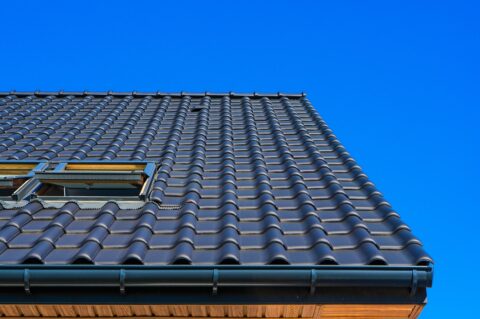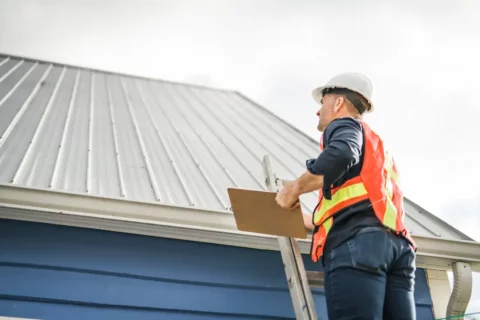
What Is the One Square Rule in Colorado?
In Colorado, homeowners and contractors alike often encounter the “one square rule” when dealing with roof repairs. This regulation, part of local building codes, plays a key role in determining whether a roof repair is sufficient or if a full replacement is required. The one square rule refers to a guideline that allows up to a certain amount of roofing material—typically one square or 100 square feet—to be repaired without the need for a complete roof replacement. This rule provides flexibility for homeowners dealing with minor roof damage while ensuring that larger issues are properly addressed.
Understanding the one square rule is important for both homeowners and contractors to ensure compliance with local building codes and to make informed decisions about roof maintenance. In this blog post, we’ll explain how the one square rule works, when it applies, and how it fits into Colorado’s roofing regulations. Whether you’re managing small repairs or considering a full roof replacement, knowing how this rule impacts your project can save you time, money, and potential headaches.
Understanding the One Square Rule
The one square rule in Colorado is designed to limit the scope of roof repairs without requiring a full roof replacement. Under this rule, if the damaged area of the roof is less than one square—equal to 100 square feet—you can opt for a repair rather than having to replace the entire roof. This is a practical solution for homeowners dealing with localized damage caused by hail, wind, or other minor issues. However, if the damage exceeds this one-square limit, local building codes may require a complete replacement to maintain the structural integrity of the roof.
The rule helps ensure that small repairs are handled efficiently without unnecessary expenses, but it also prevents patching up roofs that may be too worn to handle another season of Colorado’s extreme weather. Knowing the limitations of this rule is essential for making informed decisions about your roof’s long-term health and avoiding potential compliance issues.
How It Applies to Roof Repairs and Replacements
In Colorado, the one square rule typically applies to minor roof repairs that involve fixing damage to a small section of shingles, tiles, or other roofing materials. This can include replacing a few shingles after a hailstorm or patching a small leak. If the damage is confined to less than 100 square feet, homeowners can proceed with the repair without needing to consider a full replacement.
However, when the damage exceeds one square, Colorado building codes may require a full roof replacement to ensure safety and proper installation standards. This is particularly important in areas prone to severe weather, where patching over significant damage could leave the roof vulnerable to future issues. For more on roof damage caused by Colorado’s weather, see our article on How to Spot and Assess Hail Damage on Your Denver Roof.
Colorado Building Codes and the One Square Rule
The one square rule is part of Colorado’s broader roofing regulations, which are designed to protect homeowners and ensure roofs meet structural and safety standards. Local building departments enforce these codes, and the one square rule helps differentiate between a minor repair and a situation where a roof is no longer capable of protecting the home effectively.
To ensure compliance with building codes, it’s essential to have a professional roofing contractor assess the damage. Failure to adhere to these codes can result in fines, complications when selling your home, or even costly repairs down the road if the roof’s integrity is compromised. Understanding how this rule fits into the overall building regulations will help you make more informed decisions and avoid legal or financial setbacks.
Benefits and Limitations of the One Square Rule
The one square rule offers clear benefits to homeowners. It allows for affordable, quick repairs in cases of minor damage, saving time and money that a full replacement would require. Additionally, it helps preserve the integrity of a roof by ensuring that larger issues aren’t ignored in favor of quick fixes. This rule balances flexibility with safety, preventing roofs from being patched beyond repair.
However, the rule has its limitations. If the roof sustains widespread damage, a full replacement is often the only solution. While adding more shingles or patching small sections may seem cost-effective at first, it could lead to further damage or even structural problems if the repair fails to address underlying issues. For more information on when to replace your roof, check out our article on How Many Layers of Shingles Can You Put on a Roof in Colorado?.
When a Full Roof Replacement Is Necessary
Even if only part of your roof is damaged, a full replacement may be necessary if the area exceeds the one-square limit. This is particularly true for older roofs that have undergone several repairs over the years. Adding patches or repairs on top of an already compromised roof can accelerate wear and tear, leading to further damage or leaks.
In some cases, your roofing contractor might recommend a full replacement even if the damage is less than one square, especially if the roof’s structural integrity is at risk. Given Colorado’s harsh weather conditions, it’s important to consider whether a short-term fix will hold up to the state’s intense winters and hot summers. For guidance on when a complete replacement is needed, our article on What Color of Asphalt Shingles Last the Longest in Colorado can offer insight into long-term durability.
Conclusion
Understanding the one square rule in Colorado is essential for making informed decisions about roof repairs or replacements. This rule offers flexibility for handling minor damage, but it also ensures that larger roofing issues are addressed properly for long-term safety and durability. Whether you’re facing a small repair or considering a full replacement, it’s important to know how this rule fits into local building codes and what it means for your home.
At 303 Roofer, we specialize in helping Colorado homeowners navigate these regulations with ease. Our team of experts can assess your roof’s condition and recommend the best course of action, whether it’s a quick repair or a complete replacement. Contact us today for a free roof inspection or request a free estimate, and let us help you protect your home from Colorado’s unpredictable weather.



